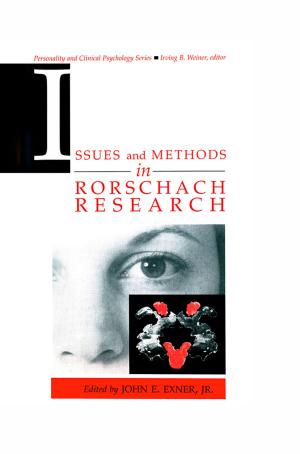Leading For Regeneration
Going Beyond Sustainability in Business Education, and Community
Business & Finance, Economics, Sustainable Development| Author: | John Hardman | ISBN: | 9781136580093 |
| Publisher: | Taylor and Francis | Publication: | July 3, 2013 |
| Imprint: | Routledge | Language: | English |
| Author: | John Hardman |
| ISBN: | 9781136580093 |
| Publisher: | Taylor and Francis |
| Publication: | July 3, 2013 |
| Imprint: | Routledge |
| Language: | English |
This book presents the regenerative leadership framework that has emerged from doctoral research and consulting work with successful sustainability leaders and their organizations in business, education, and community. The framework synthesizes the levels of awareness, the leadership styles and behaviours, and the organizational arrangements that correlate most significantly across these domains. Most importantly, the overwhelming majority of the leaders in this work agree that individual and collective consciousness development is critical to transforming the culture of organizations for sustainability and beyond.
The term regenerative has not been chosen arbitrarily, but to provide an alternative to the notion of sustainability, which many of the leaders featured here indicate has become insufficient to describe what needs to be done, economically, socially, and environmentally, if we are to ensure a flourishing world for present and future generations. This work in turn has led to the development of the Regenerative Capacity Index (RCI), a tool designed to assess an organization’s readiness to engage in regenerative practice. From this evaluation of an organization’s regenerative capacity, it becomes possible to design a strategy for regeneration that considers all levels of its environmental, social, and economic impact, both internally and externally, in the local and global community.
Among its major findings, the book argues that the more evolved sustainability leaders are becoming increasingly dissatisfied with the construct of sustainability, and indicate the need for a profound cultural shift towards regenerative human systems. In this framework, regenerative organizations are driven by a sense higher purpose, and leadership is exercised horizontally and collaboratively. Leaders and followers engage in generative conversations to create desirable futures which are then ‘backcasted’ to eliminate unanticipated consequences. Throughout, leaders emphasize the critical importance of engaging in personal and collective consciousness development or "inner work" in order to make regenerative practices possible.
This book presents the regenerative leadership framework that has emerged from doctoral research and consulting work with successful sustainability leaders and their organizations in business, education, and community. The framework synthesizes the levels of awareness, the leadership styles and behaviours, and the organizational arrangements that correlate most significantly across these domains. Most importantly, the overwhelming majority of the leaders in this work agree that individual and collective consciousness development is critical to transforming the culture of organizations for sustainability and beyond.
The term regenerative has not been chosen arbitrarily, but to provide an alternative to the notion of sustainability, which many of the leaders featured here indicate has become insufficient to describe what needs to be done, economically, socially, and environmentally, if we are to ensure a flourishing world for present and future generations. This work in turn has led to the development of the Regenerative Capacity Index (RCI), a tool designed to assess an organization’s readiness to engage in regenerative practice. From this evaluation of an organization’s regenerative capacity, it becomes possible to design a strategy for regeneration that considers all levels of its environmental, social, and economic impact, both internally and externally, in the local and global community.
Among its major findings, the book argues that the more evolved sustainability leaders are becoming increasingly dissatisfied with the construct of sustainability, and indicate the need for a profound cultural shift towards regenerative human systems. In this framework, regenerative organizations are driven by a sense higher purpose, and leadership is exercised horizontally and collaboratively. Leaders and followers engage in generative conversations to create desirable futures which are then ‘backcasted’ to eliminate unanticipated consequences. Throughout, leaders emphasize the critical importance of engaging in personal and collective consciousness development or "inner work" in order to make regenerative practices possible.















